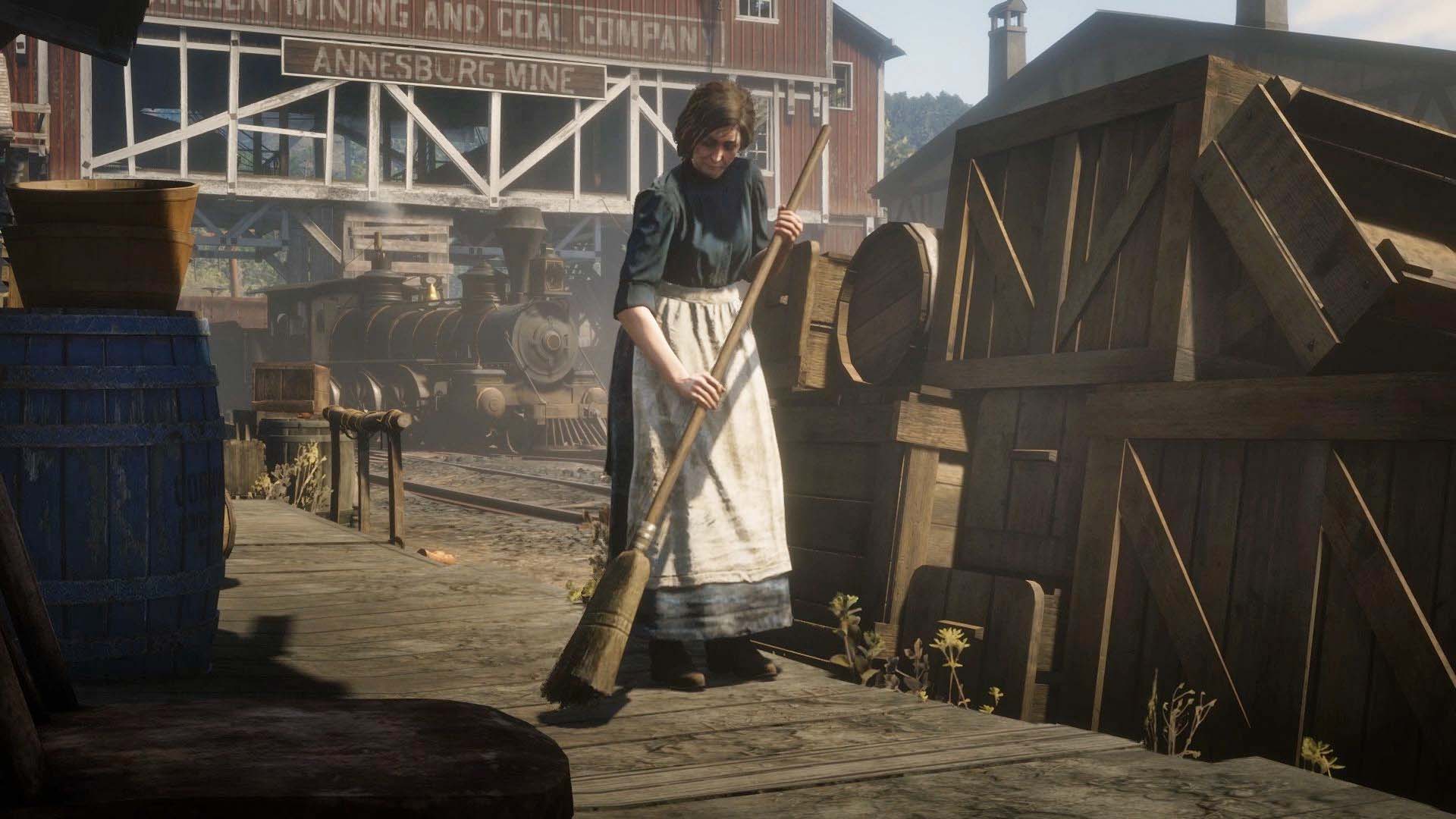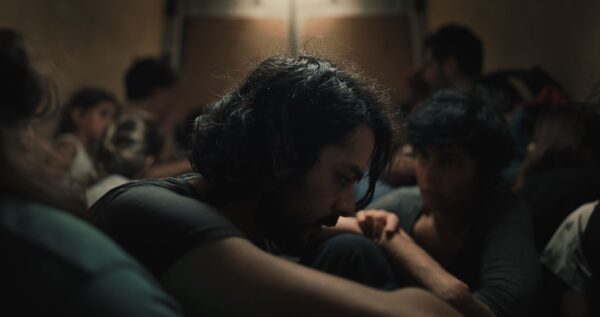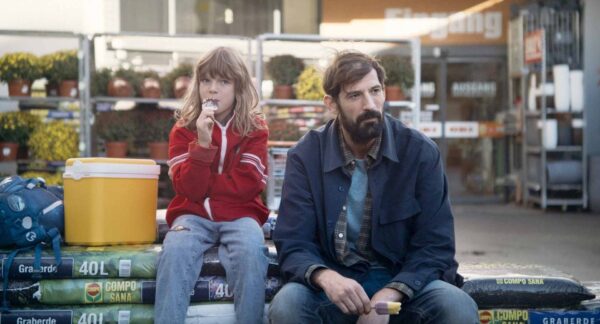Film Or Elevated Video Game Critique?
Hardly Working
The Austrian collective Total Refusal is back with a well-executed but ultimately prosaic exercise in pseudo-Marxist thinking.

The Austrian collective Total Refusal describes itself as a “pseudo-Marxist media guerrilla focused on the artistic intervention and appropriation of mainstream video games.” In practice, this means these six people, roughly of the millennial generation, make short films, installations, and live online performances that dissect video games from an ideological point of view, or more specifically, through the lens of a capitalist critique with a hefty, and probably necessary, dose of irony.
How much can these products be perceived as films? Total Refusal plays with various forms (a lot) with varying degrees of success, and they do not call themselves filmmakers. What they are making is not a film in the traditional sense. But in the context of one of their works screening at a film festival, like Hardly Working at Uppsala Kortfilmfestival, they inevitably acquire this frame of perception.
For Hardly Working, they took a popular video game they had previously tackled with a live online performance: Red Dead Redemption 2 is an action-adventure set in the town of St. Denis, a fictional stand-in for New Orleans at the end of the 19th century—an elaborate world that reviewers called “vast and staggeringly detailed” and “meticulously polished.” For a non-gamer like me, it is an environment that many blockbuster films would struggle to create. Aesthetically, it falls somewhere between the cyberpunk influences in the infamous Will Smith flop Wild Wild West (1999) and the hopeless muddiness and filth of Sam Peckinpah’s classic The Wild Bunch (1969).
For gamers, the degree of realisticity in world-building is often a decisive factor to stay with the game. So besides the environment and the primary characters that the player controls, these worlds are populated by NPCs: non-playable characters or extras. Total Refusal does not actively play the game or interfere with its world but instead observes four of these NPCs, commenting in a voice-over on their actions and interpreting their supposed lives, psychological states, mental processes, and desires—all from an angle of a capitalist critique.
The film starts with a carpenter, who, we learn, hammers about one hundred and twenty nails in the wooden planks on the pier over his 11-hour workday, every day. His actions have no consequence, as he is just a background character, but the voice-over puts him in a political context: he is not interested in the product because the aim of capitalism is not to satisfy demand but to accumulate. The same goes for the eternally drunk farmhand (who aimlessly cuts wood or fills an already full bucket with water), the laundress (who scrubs clothes on a washboard, kneeling in the dirt), and the street sweeper (who just stands all day in front of her house with a broom, cleaning caked mud on a tiny patch of the sidewalk).

Hardly Working (Total Refusal, 2022)
When they are not working, these NPCs stand or sit around; this is where the filmmakers use the opportunity to infuse them with human qualities. When the laundress looks into the distance, they wonder if she is perhaps dreaming of a better life. When the street sweeper’s broom is gone, they ask: “Is broom her tool without which she has no meaning, or is she actually the one who is the instrument of the broom?”
But this aspect—that these characters’ lives consist only of working and idling—is, in fact, quite realistic. What else did poor people in 19th-century New Orleans have to do? Men go drinking like the farmhand does (getting smashed from a couple of sips of beer), and women either stay at home or keep working, sometimes as sex workers. Their lives consist of repetitive actions, day in, day out, but when you think of it for a second, is it really much different in real life for people with low incomes, whether in the 19th century or today? Isn’t there more potential in exploring their relations than in interpreting actions designed to be pointless and repetitive? Now, Total Refusal only briefly mentions that reproductive labour (meaning sex workers) produces nothing (as there are no children in the game), while they could touch further upon issues directly related to this target. Moreover, what about the representation BIPOC NPCs receive? Isn’t this some meaty material for a capitalist critique of a video game set in 1899 America?
What Total Refusal does is clever, engaging, and often funny, but in a smug way. A convincing dramatic arc is supported by a sparsely used and strategically placed sound design. Still, with this “I know that you know that I know” type of irony in the text, it all plays out like a condescending look at a piece of content that was never intended to have a function worth analysing. Similar to disparaging a film for using old cinematic conventions: how did this writer and his painter wife afford this huge mansion, or why does no one lock their cars or say goodbye at the end of a phone call? In the end, Hardly Working amounts to a smartly conceived, well-executed, but ultimately prosaic exercise in, well, pseudo-Marxist thinking.
After seeing Total Refusal’s excellent previous film, How To Disappear, which premiered in the Berlinale Shorts competition in 2020 and later gained wider exposure as a Vimeo Staff Pick, this left me hoping for more. In How To Disappear, they used Battlefield V, a hyper-realistic first-person shooter game set in the Second World War, to tell the story of desertion. In this case, they play the game, and when you try to leave the battle, you simply get shot—you can’t kill yourself or another soldier in your army. Trying to do this creates a comic effect, counterpointed by the voice-over interpreting the game’s influence on the player from the anti-capitalist angle, supported by a fascinating narrative of how armies dealt with deserters throughout history. Though desertion is not the topic of this game, just like capitalism isn’t the topic of Red Dead Redemption 2, by focusing on an element that decidedly belongs to the essence of the game’s world and expanding on it, they created a powerful anti-war film. By comparison, Hardly Working is more an elevated critique of a video game.
This text was published in cooperation with This Is Short, the European streaming platform for short films.






There are no comments yet, be the first!